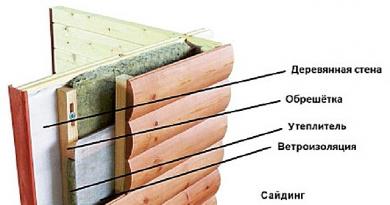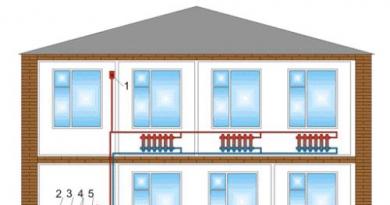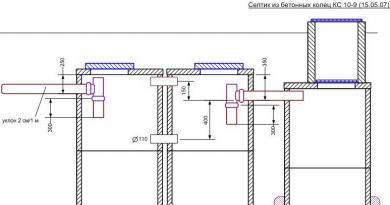In any room of the apartment, where water is supplied, there are a number of pipes, which, by their presence, spoil the overall picture of the design. Therefore, in each project of an apartment or house, builders and designers use different techniques to hide pipes and communications.
So why hide pipes? - The answer is simple - purely from an aesthetic point of view, I do not want to see plastic or metal pipes in a luxurious bathroom, lined with Spanish tiles, for example. But, in addition to beauty, we must not forget about practicality, and therefore everything must be done so that the pipes are not visible, but at the same time, are easily accessible in case of problems with the water supply or sewage system. Competent disguise of economic communications sets itself just such a goal - beauty and functionality.
How to hide pipes in the bathroom
There are four objects in the bathroom that require piping: a bathtub, a washbasin, a toilet and a washing machine. And each of these facilities requires a separate water supply and sewerage system. Therefore, the placement of all plumbing facilities, which they all are, need to be thought about in advance. - even at the stage of reconstruction of the premises, in order to correctly, correctly and conveniently conduct all communications to them. You need to discuss these issues with the builders and the designer, if you do not do the project yourself. Only in such a tandem can you understand what, how and where to place it correctly.
After you have figured out where and what you will be placing in the bathroom, you need to decide how exactly you want to hide the pipes. There are several options:
Install pipes into the wall
This is the most accurate method from an aesthetic point of view, and from a practical point of view, pipes embedded in the wall become practically inaccessible. This method will require a lot of effort to implement it, because in order to hide the pipe in the wall, you will need to drill special grooves in the walls, and lay the pipes in them. You will also need holes for wider sewer pipes.
Also note that only polypropylene, plastic and copper pipes are suitable for this type of gasket. The method by which the pipe joints need to be connected is by welding or soldering.
1
There is one more trick - before laying the pipes, insulate the pipes with heat insulation for pipes. It will protect the pipes from condensation when they are already inside the walls, and will also allow the pipes to expand, which inevitably happens with any pipes over time.
When installing pipes in a wall, ensure that you have access to at least the pipe joints. Otherwise, if you need to get to them, you will have to break down the walls. There are a large number of options for doors and hatches that are built into the wall in order to open access to communications.
An interesting solution for the bathroom - it was placed on a dais, in which all the pipes were hidden, and a hatch for communications was brought out on the side. Nice, practical and comfortable.
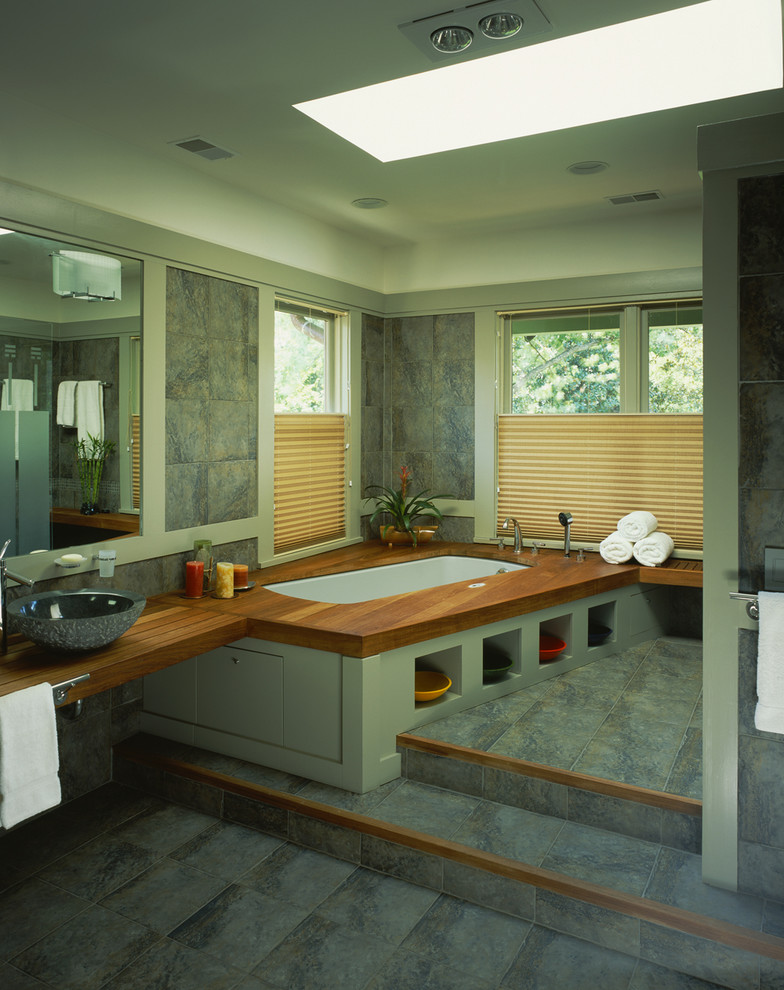
Build a special pipe box
This method has taken root very well in many bathrooms in our country. And this is not surprising, because the box, on the one hand, looks like a cabinet, and on the other, it does not block access to the pipes. Also, the boxes have several significant advantages over the same wall mounting - you can hide large, large pipes in it, for example, like a sewer riser.
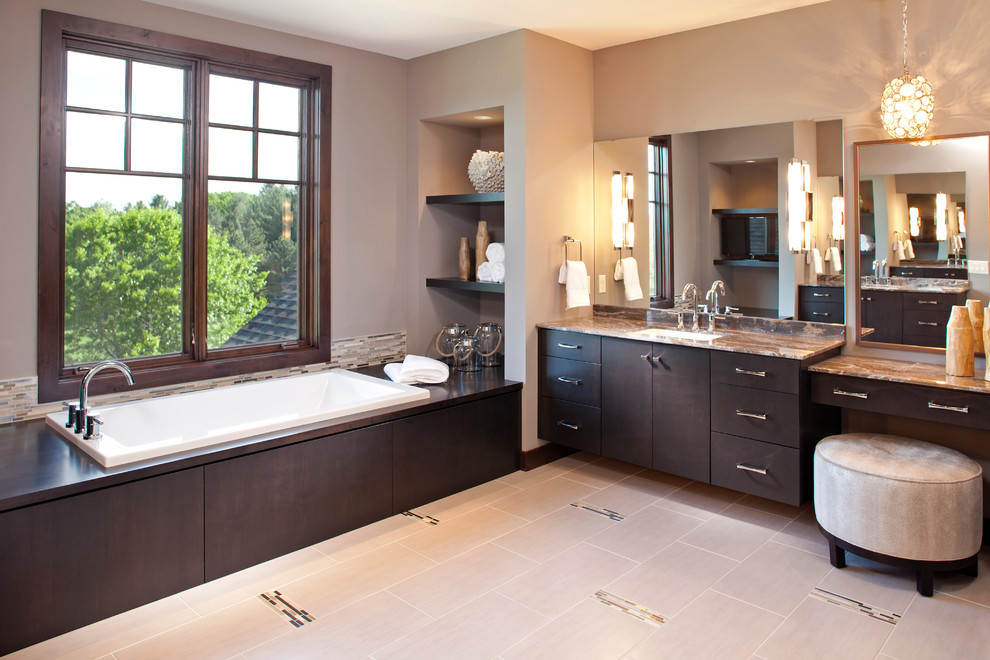 2
2
In addition, the box allows you to place a water heater and shelves inside itself, on which you can store household items and detergents for cleaning the bathroom and toilet. Also, this method is just perfect for a bathroom, in which all pipes are located behind the toilet along the wall.
The box for pipes can be made of plasterboard, chipboard panels. As for chipboard and wood, the first should only be moisture resistant, and the second should have an impregnation that will protect the wood from moisture. It is best to first replace the old pipes with new ones so that they do not spoil the box due to condensation. Or at least put an insulating cover on the pipes, which will prevent condensation from forming.
The box has one significant drawback - in the event of a leak or other problems, you will have to disassemble it all, so you need to take care of the quality of the pipes and their connections in advance so that you do not have to do the repairs again later.
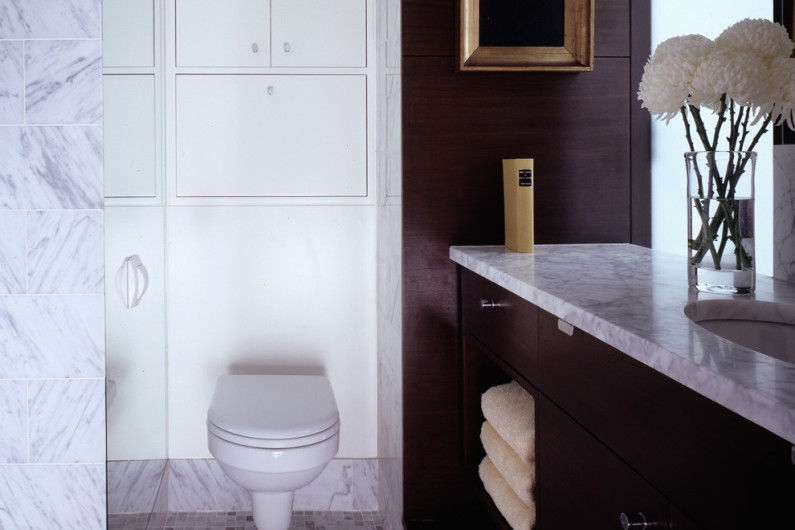
Hide communications in furniture
Placing pipes in furniture is just as convenient as in a box. Visually, nothing is visible, but always at hand and in easy accessibility. But in the case of pipes in furniture, you need to be sure of the quality of the pipes and joints with which they were connected. Otherwise, the cabinet or cabinet is damaged and cannot be restored. Therefore, you have a choice - either replace the old pipes with new ones, or leave them open.
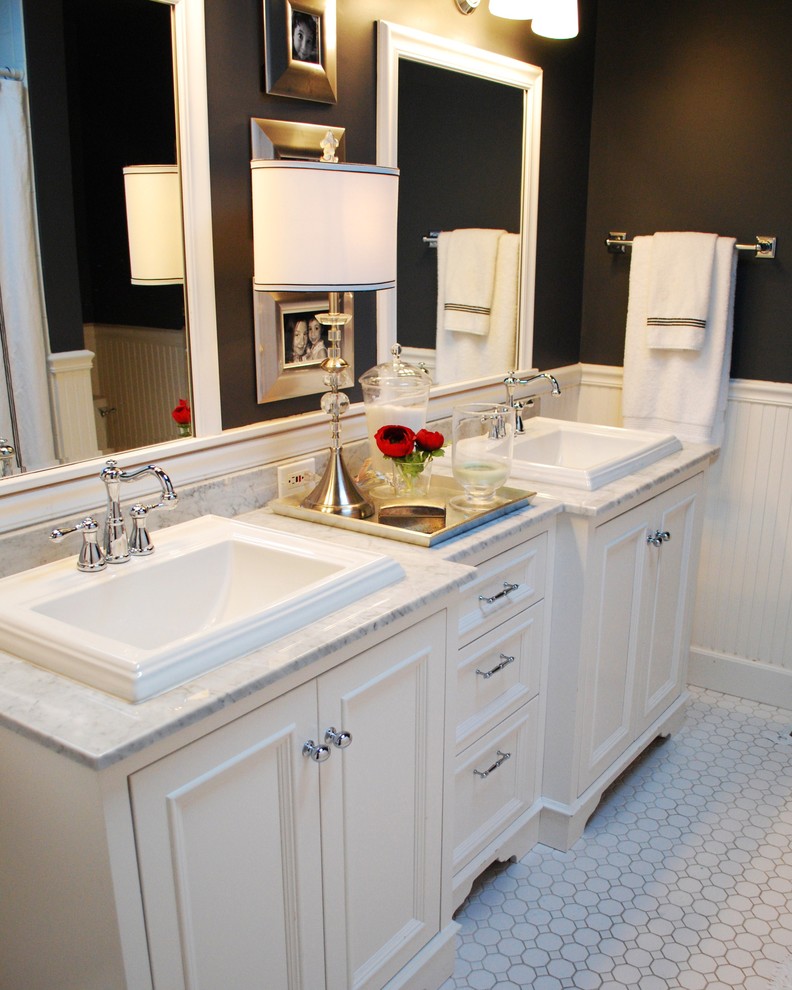
An increasingly popular idea lately is wall-hung washbasin cabinets. Very fresh and stylish.
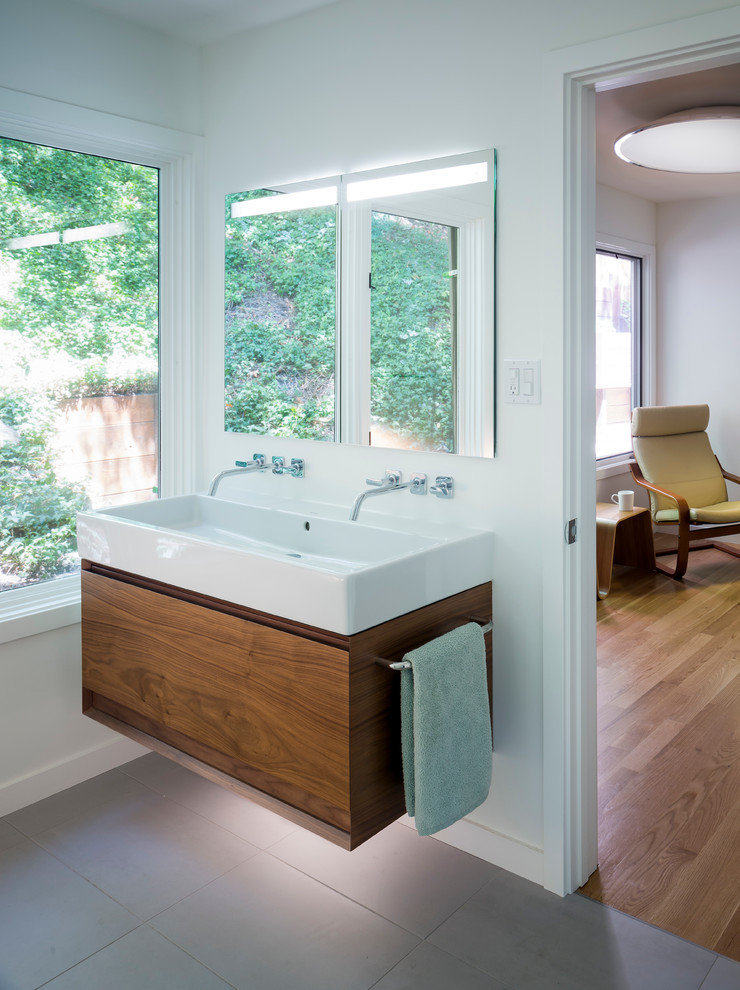
In this case, it was possible to combine three in one. In one pedestal, they managed to immediately place pipes to the sink, toilet and, along the way, hid communications for the shower stall.
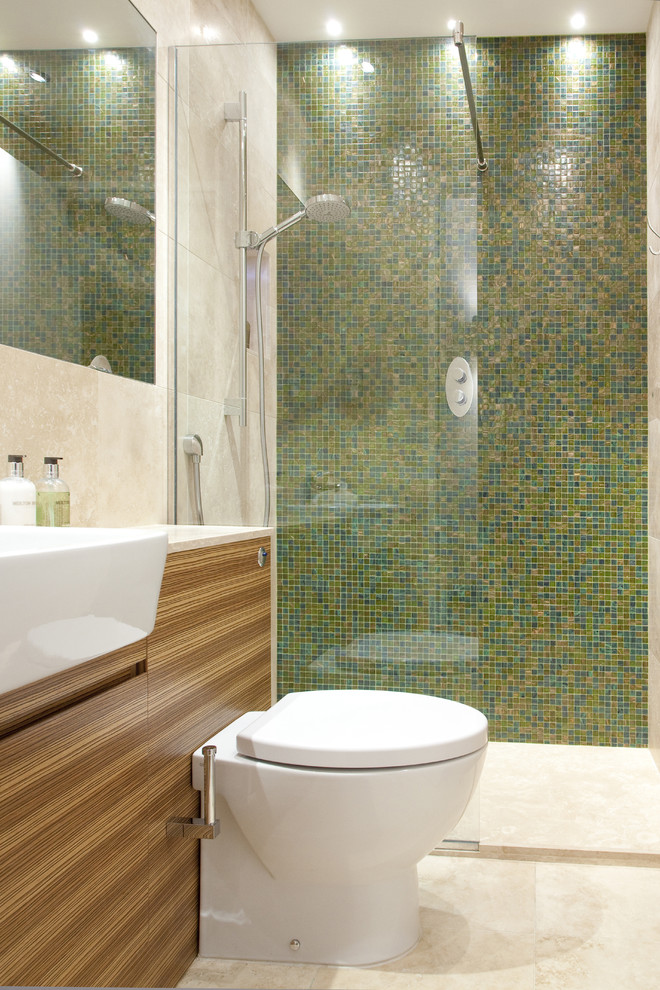 1
1
false cabinets or curtains to cover pipes
This method is rather decorative. After all, it is convenient in that it does not require a lot of investment and time for its implementation. You only need to choose the curtain you like and hang it in the washbasin frame. This solution looks very cute and is ideal for a shabby chic or country kitchen. And besides, in the event of a pipe leak, you can immediately notice the problem and fix it.
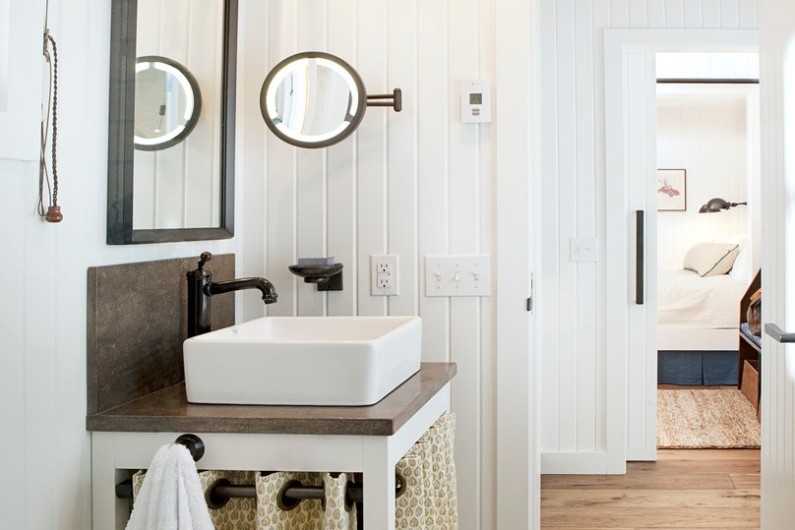
In this photo we see an interesting idea When a door with false drawers is made, behind which the washing machine is actually hiding along with all communications. Original and convenient.
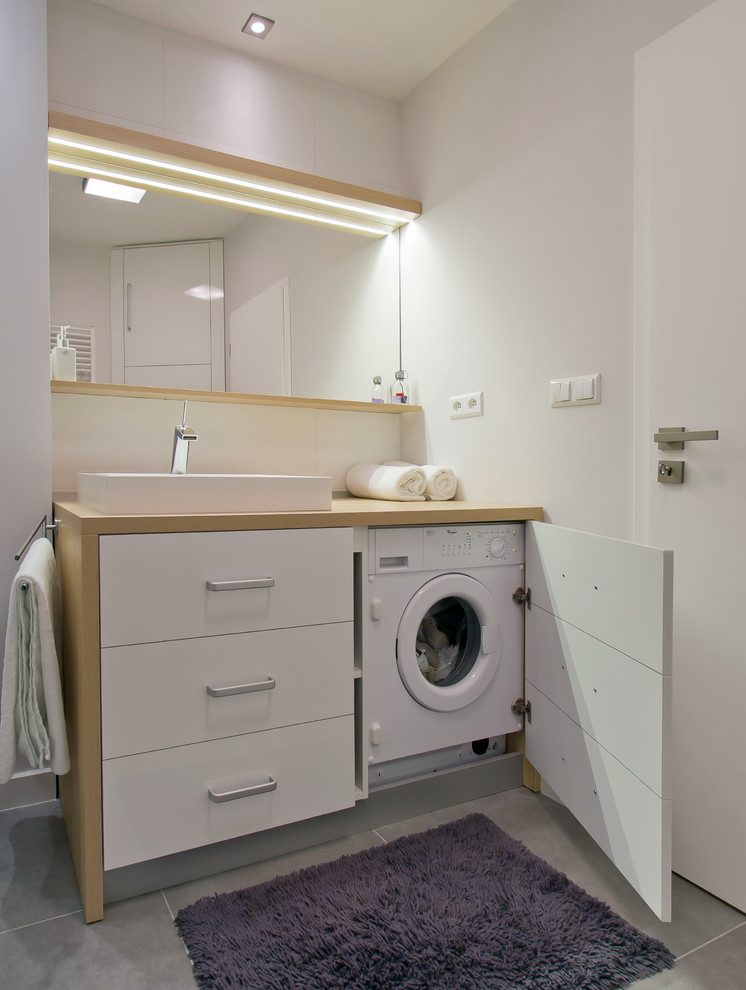 3
3
So, we have reviewed 4 simple and affordable ways with which you can easily hide water and sewer pipes away from the eyes of residents and guests of your home. Observing the simple rules for the installation and quality of pipes, boxes and boxes will serve you for many years without requiring replacement or repair.

